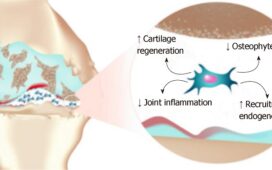In today’s complex world, a trauma-informed life coach offers a compassionate, evidence-based framework for healing across a range of challenges—from PTSD recovery to relationship repair and anxiety management. By tailoring interventions to honor each client’s unique experiences, these coaches empower individuals to move beyond survival mode into a life of purpose, connection, and resilience.
1. Trauma-Informed Life Coach
A trauma-informed life coach creates a safe, non-judgmental space where you can explore how past wounds impact your present—and co-design actionable steps toward growth. Grounded in principles of safety, choice, collaboration, and strengths-based practice, coaching sessions often include:
- Grounding exercises to regulate the nervous system
- Somatic awareness techniques that reconnect mind and body
- Goal-setting frameworks aligned with your personal values
- Thought-reframing strategies adapted from cognitive approaches
This forward-focused model meets you where you are, honors your pace, and celebrates every step you take toward healing.
2. PTSD Recovery for Veterans
PTSD recovery for veterans addresses the invisible wounds of service through a blend of peer support, specialized coaching, and evidence-based therapies. A trauma-informed coach who understands military culture may integrate:
- Narrative processing to safely reconstruct traumatic memories
- Peer-led goal setting that leverages shared experiences
- Coordination with clinical providers (e.g., EMDR, CPT, PE)
- Self-regulation tools for flashback and hypervigilance management
By coupling respect for military identity with resilience-building practices, veterans can reclaim agency and rebuild meaningful civilian lives.
3. Christian Marriage Counseling
In Christian marriage counseling, faith and psychology intertwine to guide couples toward deeper unity. A trauma-informed coach or counselor will:
- Incorporate prayer and Scripture into conflict-resolution exercises
- Use biblical principles of forgiveness, humility, and sacrificial love
- Facilitate empathy-building activities that address relational trauma
- Set spiritually grounded goals for communication and intimacy
This approach not only resolves surface disagreements but also cultivates a covenantal bond reflecting Christ’s self-giving love.
4. Veteran Trauma Retreat
A veteran trauma retreat offers an immersive, communal setting for concentrated healing. Over several days, participants engage in:
- Nature-based therapies such as wilderness immersion or equine work
- Group processing circles led by trauma-informed facilitators and fellow veterans
- Workshops on resilience skills—from grounding techniques to narrative reconstruction
- Creative expression outlets like art, journaling, or music therapy
Removing veterans from daily stressors, these retreats foster peer connection and provide a foundation for lasting emotional recovery.
5. CBT Coaching for Anxiety
CBT coaching for anxiety combines the science of Cognitive Behavioral Therapy with an action-oriented coaching framework. Clients learn to:
- Identify and challenge anxious thoughts using thought records
- Engage in behavioral experiments to reduce avoidance
- Practice breathing and mindfulness exercises for in-the-moment relief
- Set incremental exposure goals to build confidence
With regular sessions and homework assignments, CBT coaching equips you with a lifelong toolkit for managing anxiety and expanding your comfort zone.
Whether you’re a veteran seeking relief from PTSD, a couple yearning for stronger spiritual connection, or an individual ready to break free from anxiety loops, trauma-informed life coaching offers a versatile, person-centered path forward. By integrating specialized services—PTSD recovery, Christian marriage counseling, trauma retreats, and CBT coaching—you can address the full spectrum of your healing needs and step into a life defined by resilience, purpose, and hope.















